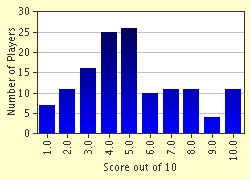Quiz Answer Key and Fun Facts
1. The First Opium War was fought from ______ to ______.
2. Whom did Emperor Daoguang send as imperial commissioner to Guangzhou to solve the opium problem and stop the British?
3. The result of negotiations between the Chinese and the British was the Convention of __________ in January 1841, in which barely the minimum of British demands were met.
4. __________________ replaced Charles Elliot as lieutenant general of British trade in China in August 1841 and immediately ordered his forces to occupy important coastal cities, including Ningbo and Tianjin.
5. On August 29, 1842, the Chinese signed the Treaty of __________ at gunpoint.
6. The ________ Incident of 1856 was the spark that ignited the Second Opium War.
7. An expedition force sent by the British and a French task force took over _____________ in December 1857.
8. In June 1858, the __________________________ was signed.
9. After 400 British men were killed and four British ships were sunk by angry Chinese, a much larger Anglo-French force returned a year later, in _____________________.
10. On October 24, 1860, British leaders imposed the Convention of ________ over the defeated Chinese.
Source: Author
arsalanrizvi
This quiz was reviewed by FunTrivia editor
bloomsby before going online.
Any errors found in FunTrivia content are routinely corrected through our feedback system.


